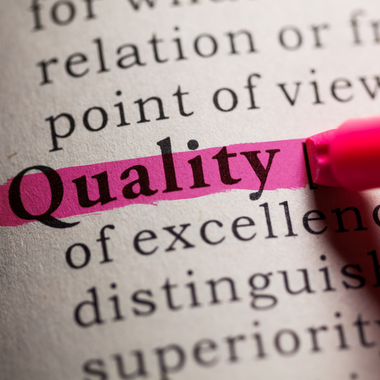Chimeric antigen receptor (CAR) T-cell therapy is a type of immunotherapy that has revolutionized the way many hematologic malignancies are treated. Since 2017, 6 CAR T-cell therapies have been approved by the US Food and Drug Administration (FDA) for the treatment of blood cancers including lymphomas, some forms of leukemia, and most recently, multiple myeloma. These therapies have produced remarkable outcomes in some patients for whom other treatments had stopped working. This development has facilitated a growing interest in the potential of CAR T-cell therapy for the treatment of other cancers. Worldwide, there are more than 600 active CAR T-cell therapy trials currently ongoing. However, despite significant clinical progress, there are several access challenges for patients in need of CAR T-cell therapies. These include geographic access, caregiving, insurance coverage, and affordability.
Improving Access to CAR T-Cell Therapy in the Community Setting
CAR T-cell therapy is complex and to date, has generally only been available at select treatment centers. Fortunately, most of the United States population resides within a reasonable driving distance from a hematopoietic cell transplantation (HCT) center. One study found that nearly half (46.7%) of the US population lives within 30 minutes of a transplant center and 65.9% to 77.1% of the population reside within 60 and 90-minutes, respectively, of a transplant center. However, fewer than 100 centers were certified to give axicabtagene ciloleucel (YESCARTA®) in the US as of 2020.
Additional access issues remain. Risk Evaluation Mitigation Strategy programs for CAR T-cell therapies may require patients to remain within a specified travel time to the treatment center (between 30 minutes to 2 hours), restrict driving, and frequently require a caregiver to be present for 30 days post-infusion. While these processes are critical for monitoring safety post-infusion, these requirements can pose substantial challenges for patients and caregivers.
Furthermore, some lesser-resourced cancer programs and practices are wary to offer CAR T-cell therapy given the skills and infrastructure required to administer it. Many smaller community cancer centers indicate they prefer to refer patients who are (or may be) candidates for CAR T-cell therapy to larger cancer programs and academic medical centers. Some of the reasons for these programs’ hesitation include unfamiliarity with the therapy; inadequate reimbursement; insufficient infrastructure; and the potential for unfamiliar life-threatening toxicities in patients.
Understanding this issue, ACCC is helping community cancer programs and practices of various sizes gain the education needed to build a CAR T-cell therapy program. These educational programs provide key information on the operational infrastructure of delivering CAR-T therapy, as well as the importance of care coordination, patient support, and timely patient identification. ACCC also hopes to improve referral relationships between providers and certified centers. These programs are made possible through support by Kite Pharma, Janssen Oncology, Bristol Myers Squibb, and Legend Biotech.
Coverage and Affordability Challenges
CAR T-cell therapy is expensive. For example, the most recently approved CAR T-cell therapy costs more than $450,000. Additionally, there are significant associated costs, including but not limited to inpatient admission stays, management of complications, and logistical expenses such as travel costs. This poses unique challenges for patients, caregivers, providers, and payers.
Cancer centers and programs offer financial navigation services to patients to help them obtain available coverage and financial assistance. In fact, coverage is often a prerequisite before treatment can begin. For example, even Medicare beneficiaries may not be assured full coverage. If a traditional Medicare beneficiary does not have a supplemental plan (or is not covered by a Medicare Advantage plan), the significant cost-sharing under traditional Medicare (20%) may be prohibitive for patients. This means that some patients cannot afford their out-of-pocket costs, and this may deter them from receiving treatment. This does not include the associated costs of treatment such as inpatient admission stays or travel cost. As a result, many insured patients face reimbursement restrictions.
Approximately two thirds of US healthcare plans have restrictive coverage policies relating to cell and gene therapy, likely due to the high costs of treatment. Center and payer processes can add a week or more to CAR T-cell therapy treatment timelines and this presents challenges for patients with active and rapidly progressing disease.
Innovative Payment Models
CAR T-cell therapies have the potential to save or significantly prolong many patients’ lives. Yet the cost and reimbursement of these therapies pose unique challenges for the healthcare system. New payment models are emerging that seek to address patient mobility across payers over time and/or create risk-sharing mechanisms where manufacturer payments are tied to certain treatment milestones. Some mechanisms identified to help structure payments for cell and gene therapies include:
- Milestone-based contracts: Upfront payment with requirement for refund if certain milestones are not met. One-year term.
- Multi-year milestone-based contracts: Longer-term, performance-based agreement with requirement for rebate if certain milestones are not met.
- Reinsurance and stop-loss insurance.
- Risk pools.
- Performance-based annuities: Spread payments over time, including “out-year” payments once outcomes are achieved.
- Payment over time/Installment financing.
Looking Forward
CAR T-cell therapies have ushered in a new era of treatment options for patients with certain hematologic malignancies. Yet these treatments raise logistical and financial challenges for patients. Therefore, it is important to increase the number of cancer centers and programs that offer these therapies, as well as develop innovative payment mechanisms.
ACCC will continue to work with its members and the broader provider, patient, caregiver, and stakeholder communities to provide educational resources about CAR T-cell therapies and help develop possible solutions to some of the challenges that exist within the space.
Look for an upcoming article on the economics of CAR T-cell therapy, part of the ACCC education program Bringing CAR T-cell Therapies to Community Oncology.
Nicole Tapay, JD, is director, Cancer Care Delivery and Health Policy, Association of Cancer Care Centers in Rockville, Maryland.

